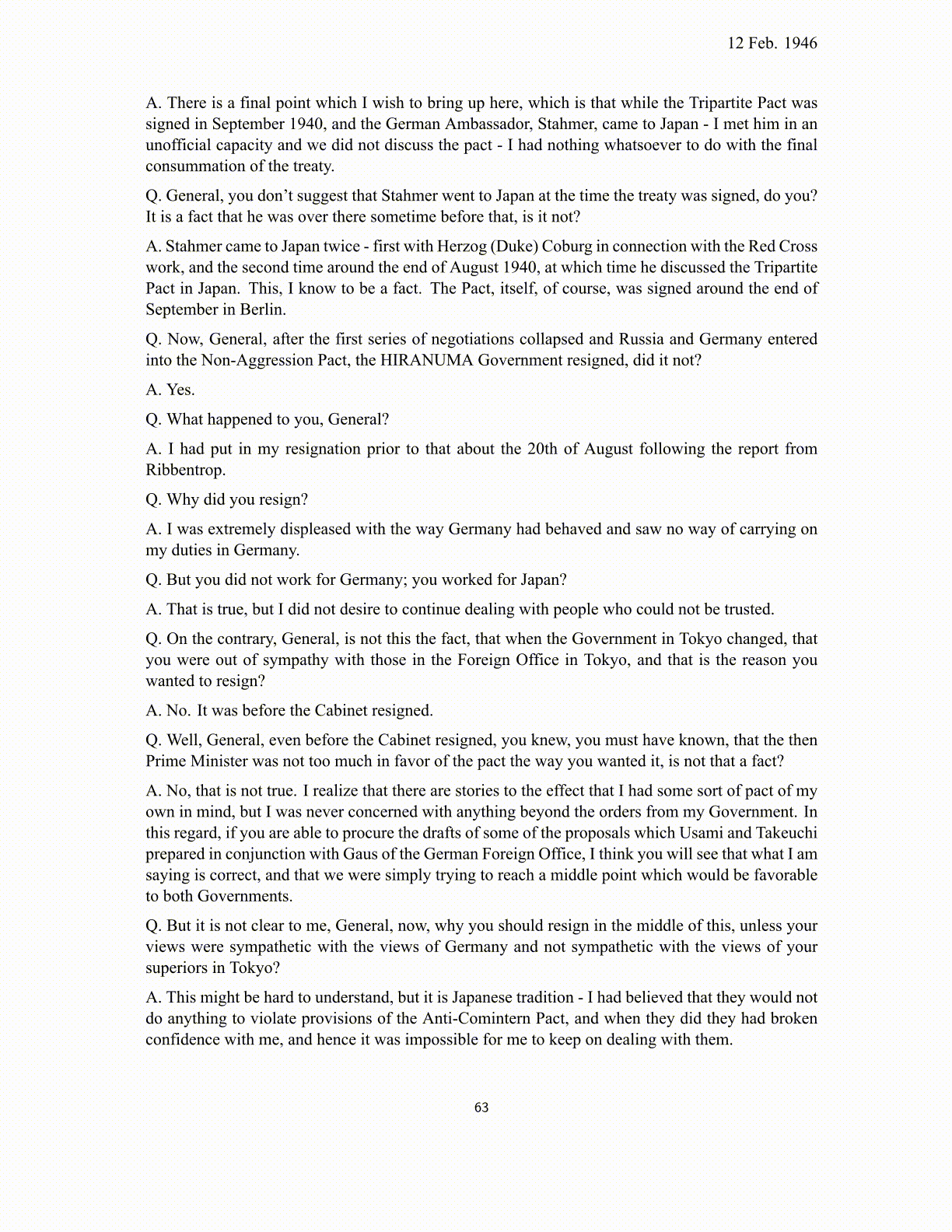
12 Feb. 1946 A. There is a final point which I wish to bring up here, which is that while the Tripartite Pact was signed in September 1940, and the German Ambassador, Stahmer, came to Japan - I met him in an unofficial capacity and we did not discuss the pact - I had nothing whatsoever to do with the final consummation of the treaty. Q. General, you don’t suggest that Stahmer went to Japan at the time the treaty was signed, do you? It is a fact that he was over there sometime before that, is it not? A. Stahmer came to Japan twice - first with Herzog (Duke) Coburg in connection with the Red Cross work, and the second time around the end of August 1940, at which time he discussed the Tripartite Pact in Japan. This, I know to be a fact. The Pact, itself, of course, was signed around the end of September in Berlin. Q. Now, General, after the first series of negotiations collapsed and Russia and Germany entered into the Non-Aggression Pact, the HIRANUMA Government resigned, did it not? A. Yes. Q. What happened to you, General? A. I had put in my resignation prior to that about the 20th of August following the report from Ribbentrop. Q. Why did you resign? A. I was extremely displeased with the way Germany had behaved and saw no way of carrying on my duties in Germany. Q. But you did not work for Germany; you worked for Japan? A. That is true, but I did not desire to continue dealing with people who could not be trusted. Q. On the contrary, General, is not this the fact, that when the Government in Tokyo changed, that you were out of sympathy with those in the Foreign Office in Tokyo, and that is the reason you wanted to resign? A. No. It was before the Cabinet resigned. Q. Well, General, even before the Cabinet resigned, you knew, you must have known, that the then Prime Minister was not too much in favor of the pact the way you wanted it, is not that a fact? A. No, that is not true. I realize that there are stories to the effect that I had some sort of pact of my own in mind, but I was never concerned with anything beyond the orders from my Government. In this regard, if you are able to procure the drafts of some of the proposals which Usami and Takeuchi prepared in conjunction with Gaus of the German Foreign Office, I think you will see that what I am saying is correct, and that we were simply trying to reach a middle point which would be favorable to both Governments. Q. But it is not clear to me, General, now, why you should resign in the middle of this, unless your views were sympathetic with the views of Germany and not sympathetic with the views of your superiors in Tokyo? A. This might be hard to understand, but it is Japanese tradition - I had believed that they would not do anything to violate provisions of the Anti-Comintern Pact, and when they did they had broken confidence with me, and hence it was impossible for me to keep on dealing with them. 63